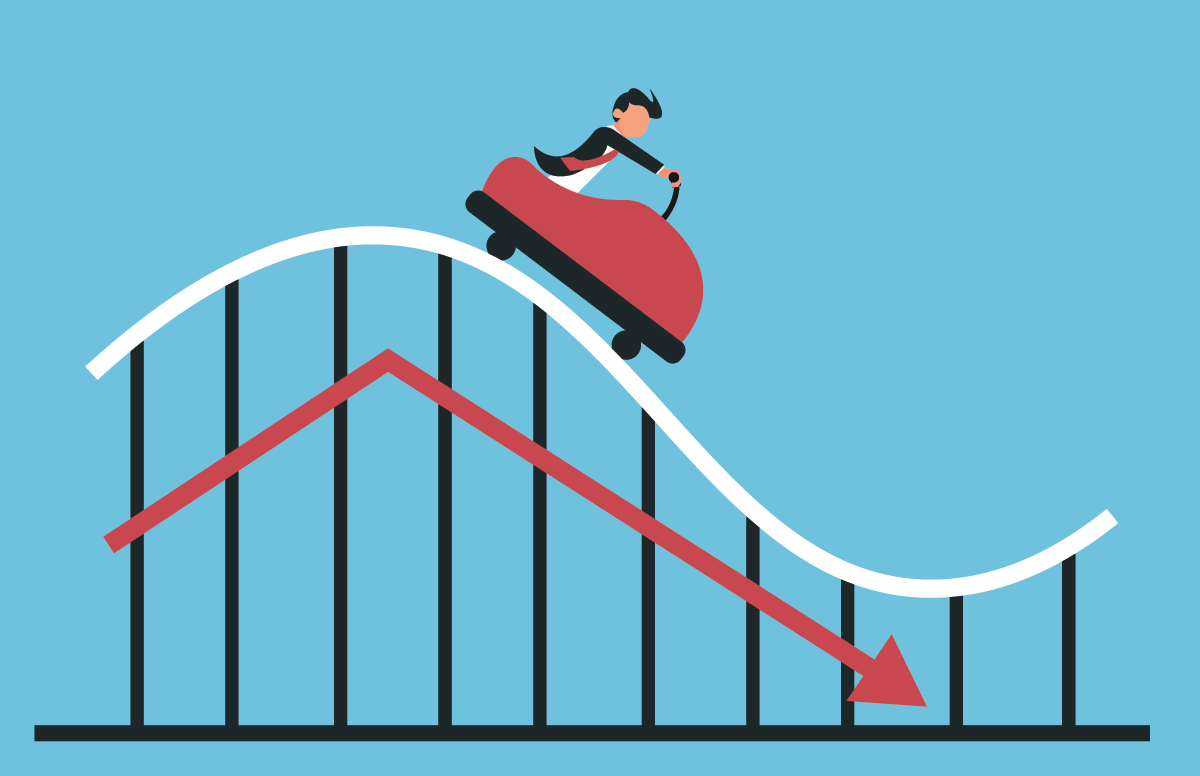Protect Yourself From Stock Market Volatility
Advice on moving some of your money to high-yielding bank accounts
Recently, uncertainty over interest rates, international trade and geopolitics around the world has led to an increase in stock market volatility. What should investors do to protect themselves?

One ultra-conservative way to approach investing is to decide how much of your portfolio you can afford to lose and put that amount in equities. Then take the rest of your money and keep it in cash (money-market bank accounts or money-market mutual funds).
Stock Market Volatility Buffer: Cash
But cash is vulnerable to inflation, which is why it is important to keep this money in the highest-yielding bank accounts possible, while taking care to keep your balances below the $250,000 FDIC insurance limit in each account. A key benefit of online banks — which often earn 1.60 to 1.80 percent more than brick-and-mortar banks— is that they are quick to adjust to rising interest rates, helping better protect your funds against inflation.
Bear in mind that much like stock prices rise and fall, investments in bonds also carry risks. With interest rates rising, and the increasing likelihood of rising inflation in the U.S. that would cause fixed-income investments to lose real value, it’s smart to keep bond holdings in short-term bonds. However, yields on short-term bonds are low — close to what online banks now pay in interest on fully-liquid, FDIC-insured savings accounts — so there may be little reason to buy these debt instruments instead of simply keeping your money in the bank.
Keeping some of your portfolio in cash may make you happier, too. In a study of bank customers in the UK, researchers Peter M. Ruberton, Joe Gladstone, and Sonja Lyubomirsky found that cash in the bank — more than income, portfolio size or debt — is the best predictor of how satisfied a person feels with their life.
The Drawback of Keeping Money in the Bank
While it may be tempting to keep all of your funds in cash when the stock market is volatile, it is important to understand that over long periods of time, cash will almost certainly underperform other asset classes. And cash typically does not even keep pace with inflation.
Although brick-and-mortar banks are still paying depositors next-to-nothing (though a little more than a year ago), with a national average of just 0.20 percent, many online banks which lack the overhead costs of branch locations, are paying over 2.00 percent.
At FDIC-insured online banks, the benefits are exactly the same for depositors as at traditional banks, affording depositors the same peace of mind.
The FDIC Insurance Limit for Bank Accounts
If your cash exceeds the FDIC insurance limit, it’s easy to set up accounts at multiple online banks. This can be done on a computer or by phone. The accounts can be linked to your existing checking account, so you can easily move money back and forth when you need it for expenses.
You can also monitor your online banks’ interest rates to ensure you are always earning the top rates. Check sites like Bankrate.com or DepositAccounts.com to see which banks are leading the pack.

